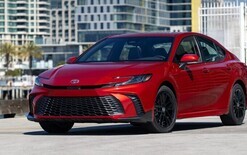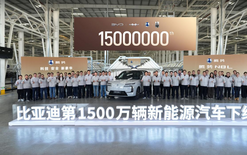Abysmal April for new-vehicle sales

Registrations of new vehicles tumbled by 90 per cent last month compared to the same month of 2019, reports the Motor Industry Association (MIA).
There were 1,039 units sold in April because of the Covid-19 crisis. The total was down by 9,601 against 10,640 sales in April last year. Year to date, the market is down by almost 32 per cent – and 15,676 units – on the same period in 2019.
“April was closed for business other than for the supply of essential vehicles and three business days at the end of the month for contactless sales,” says David Crawford, the MIA’s chief executive. “That distributors were able to sell as many as they did was testament to their determination to partially reopen while maintaining strict health and safety processes.
There were 707 new passenger vehicles sold last month. That total was down by 89.6 per cent and 6,071 units compared to 2019’s volumes. New commercials nosedived by 91.4 per cent, or by 3,530 units.
April’s top three models were the Kia Seltos with 95 sales, Toyota’s Hilux on 59 and Holden’s Colorado with 38. In addition, there were 15 battery electric vehicles (BEVs) registered, one plug-in hybrid (PHEV) and 27 hybrids.
Kia topped the overall marques latter with a market share of 16 per cent and 169 registrations. It was followed by Toyota on 13 per cent and 132 units. Suzuki sold 102 units for a 10 per cent market share.
Call for government stimulus
The MIA says the government can play a decisive role in lessening the economic pain being felt by the industry and is calling on the coalition to fast-track certain policies, including the uptake of plug-ins to be accelerated across its fleet.
To date, their uptake by government agencies “has been less than modest at best”. The MIA wants the government to increase departmental budgets to permit them to “increase their uprate of BEVs and PHEVs”.
Before the pandemic took hold, the association supported – in principle – a feebate scheme being adopted. However, given the degree of fiscal impact coronavirus is causing, the MIA believes this policy needs immediate review. “It’s our view the government should defer the introduction of a feebate scheme and instead provide incentives for fuel-efficient vehicles, to be reviewed in 2023.”
“Then there’s the question of vehicle scrappage,” adds Crawford. “We all know we have an old fleet with numerous polluting and unsafe cars roaming our roads. We believe it is time for the government to provide financial incentives to remove vehicles older than 20 years, and or when their exhaust emissions standards are the equivalent of Euro 3 or less. This would also be in-line with the new road-safety strategy and the government’s climate-change objectives.”





